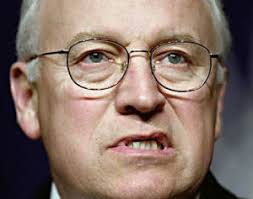
A day after the Senate voted against granting the funds he requested in order to close Guantanamo, President Obama gave a speech that sought to explain his strategy and ensure support for it. A few minutes later, past Vice President Cheney also hosted a conference, during which he attacked Obama and defended his boss, George W. Bush.
This duel between entering and exiting governments highlights the existence of two different perspectives on the way the United States should respond to threats to its national security. Cheney, through a recounting of the 9/11 terrorist attacks, again vindicated adopted policies and alluded to the grave threat still hanging over Americans. In addition to denouncing the “phony moralizing” of those who have criticized the “enhanced” interrogation tactics that were used, he pointed out that in the fight against terrorism, “There is no middle road.”
Obama criticized the idea, implied in Cheney’s speech, that “anything goes,” and related the use of that idea to justify practices like torture and the abuse of executive power. Instead, he argued that U.S. values, such as adherence to the rule of law, defense of civil liberties and the system of checks and balances, as well as accountability, constitute the best attributes of U.S. national security, and he criticized his predecessor for having abandoned them. Likewise, he condemned the fanning of fear and the manipulation of anxiety over terrorism in order to veto serious debate on issues like Guantanamo.
This last problem is not a minor one. The “war on terror” fostered a culture of fear that legitimized the adoption of methods that violated fundamental rights, spread intolerance and facilitated the mobilization of the public in favor of strategies that, in other circumstances, would have given rise to greater oversight. All this, according to President Obama, has made the U.S. less secure and has diminished its ability to combat genuine existing threats, among them, Al Qaeda.
Comparison to the Colombian reality is not gratuitous. Here, as in the U.S., fear about terrorism has been manufactured and manipulated to suit specific political interests, like re-election. This does not mean that the Revolutionary Armed Forces of Colombia (FARC) does not constitute a serious security problem. But FARC is on par with paramilitaries and drug-trafficking, the intense fear of which has not been “managed” in the same way.
As in the U.S., in Colombia the culture of fear has also impoverished public debate, aroused intransigence towards any criticism and fostered a worrying unanimity about government policies. To paraphrase President Obama, in the age of fear that has befallen us, many have preferred silence. Slowly, Americans seem to be getting out from under the reign of fear that held them prisoner for eight years. How long will we be held captive?

Leave a Reply
You must be logged in to post a comment.